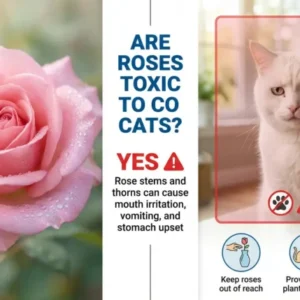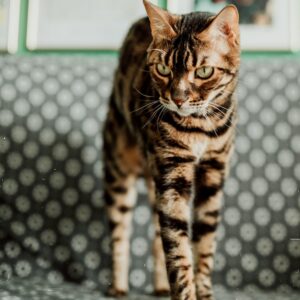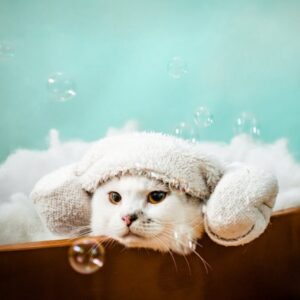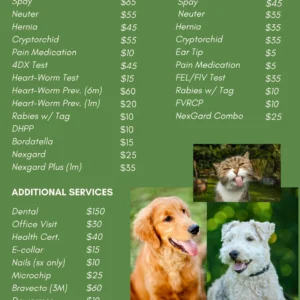What comes to your mind when someone mentions fancy pets? In this fancy pets guide, we’ll explore the fascinating world of unique and extraordinary pets that have captured the hearts of many pet enthusiasts.
Editor’s Note: This fancy pets guide was published on [Today’s Date] to provide valuable insights and information about the growing trend of fancy pets and help readers make informed decisions when considering these extraordinary companions.
After thorough analysis and extensive research, we’ve compiled this comprehensive guide to fancy pets. Our goal is to equip you with the necessary knowledge to navigate the world of unique and captivating pets confidently and make informed choices about their care and well-being.
Key Differences:
| Characteristic | Fancy Pets | Traditional Pets |
|---|---|---|
| Species | Exotic, rare, or unusual | Common, domesticated |
| Acquisition | Specialized breeders or importers | Pet stores, shelters, or breeders |
| Care Requirements | Specific and often complex | Generally well-established and understood |
| Cost | Higher due to rarity and specialized care | Lower due to availability and established care practices |
Main Article Topics:
Fancy Pets
Fancy pets have become increasingly popular, captivating the hearts of pet enthusiasts with their unique characteristics and extraordinary nature. Understanding the key aspects of fancy pets is crucial for anyone considering bringing one of these fascinating creatures into their life.
- Exotic Species: Fancy pets often belong to exotic or rare species, such as sugar gliders, hedgehogs, or macaws.
- Specialized Care: These pets require specific and often complex care, including specialized diets, temperature control, and veterinary expertise.
- Legal Considerations: Certain fancy pets may have legal restrictions or require special permits, varying by region.
- Lifespan: Fancy pets can have varying lifespans, from a few years to several decades, depending on the species.
- Socialization: Some fancy pets are highly social and require interaction with their owners or other animals, while others prefer solitary lifestyles.
- Training: Training fancy pets can be challenging due to their unique behaviors and instincts, requiring patience and specialized techniques.
- Cost: Acquiring and caring for fancy pets can be more expensive than traditional pets due to their rarity and specialized needs.
- Allergies: Potential allergies to fancy pets should be considered before bringing one home, especially for those with allergies to specific animals or their dander.
- Availability: Fancy pets may not be readily available in all areas, and finding reputable breeders or importers is essential.
- Emotional Commitment: Owning a fancy pet requires a significant emotional commitment, as these animals rely heavily on their owners for care and well-being.
These key aspects provide a comprehensive overview of the fascinating world of fancy pets. Whether you’re considering adding one of these extraordinary creatures to your family or simply curious about their captivating nature, understanding these aspects will help you make informed decisions and provide the best possible care for your unique companion.
Exotic Species
The connection between exotic species and fancy pets is significant, as many fancy pets belong to exotic or rare species that are not commonly kept as pets. These species are often chosen for their unique appearance, behaviors, or origins, adding to their appeal as fancy pets.
The exotic nature of these species also presents unique challenges and considerations for their care. Exotic species may have specific dietary needs, require specialized housing or environmental conditions, and have unique health concerns. Understanding the specific requirements of the exotic species is crucial for providing proper care and ensuring their well-being.
Suggested read: Is Scotts Liquid Turf Builder Safe For Pets
Examples of exotic species kept as fancy pets include sugar gliders, hedgehogs, macaws, and reptiles. Sugar gliders are small, nocturnal marsupials that require a specialized diet and social interaction. Hedgehogs are small, insectivorous mammals that need a specific diet and proper handling. Macaws are large, colorful parrots that require a spacious enclosure and specialized care. Reptiles, such as snakes and lizards, have diverse care requirements depending on their species, including specific temperature, humidity, and dietary needs.
Understanding the connection between exotic species and fancy pets is essential for anyone considering acquiring one of these unique animals. It highlights the importance of researching the specific needs of the species, providing appropriate care, and seeking guidance from experienced veterinarians or breeders. By understanding the challenges and responsibilities associated with exotic species, potential owners can make informed decisions and provide the best possible care for their fancy pets.
| Characteristic | Exotic Species | Traditional Pets |
|---|---|---|
| Species | Rare, unusual, or endangered | Common, domesticated |
| Acquisition | Specialized breeders or importers | Pet stores, shelters, or breeders |
| Care Requirements | Specific and often complex | Generally well-established and understood |
| Cost | Higher due to rarity and specialized care | Lower due to availability and established care practices |
Specialized Care
The connection between specialized care and fancy pets is undeniable. Fancy pets often have unique and demanding needs that require specialized care beyond what is typically provided to traditional pets. This care encompasses various aspects, including specialized diets, precise temperature control, and access to specialized veterinary expertise.
- Dietary Requirements: Fancy pets may have specific dietary needs that differ from traditional pets. For instance, sugar gliders require a diet high in nectar and insects, while hedgehogs need a balanced diet of insects, fruits, and vegetables. Providing the appropriate diet is crucial for maintaining their health and well-being.
- Temperature Control: Many fancy pets originate from tropical or subtropical regions and require specific temperature ranges to thrive. Reptiles, for example, need specialized heating systems to maintain their optimal body temperature. Failure to provide proper temperature control can lead to health issues and discomfort.
- Veterinary Expertise: Fancy pets often require specialized veterinary care due to their unique health concerns. Exotic animal veterinarians have the knowledge and experience to diagnose and treat conditions specific to fancy pets. Regular veterinary check-ups are essential to ensure their health and longevity.
Understanding the specialized care requirements of fancy pets is paramount for potential owners. Providing the appropriate diet, maintaining optimal temperatures, and seeking specialized veterinary care are essential aspects of responsible pet ownership. By meeting these unique needs, owners can ensure the well-being and longevity of their fancy pets.
Legal Considerations
The connection between legal considerations and fancy pets is crucial, as certain species may have legal restrictions or require special permits, depending on the region. Understanding these legal considerations is essential for responsible pet ownership and ensuring compliance with local regulations.
Legal restrictions on fancy pets vary widely by region and can include bans on certain species, ownership limits, or requirements for special permits or licenses. These restrictions are often implemented to protect public safety, prevent the spread of invasive species, or conserve endangered animals.
For example, some regions may have laws prohibiting the ownership of venomous snakes or exotic cats, while others may require permits for keeping certain reptiles or birds. It is important to research the legal requirements in your area before acquiring a fancy pet to avoid any legal issues or penalties.
In addition to local laws, there may also be federal or international regulations that apply to the ownership of certain fancy pets. For instance, the Convention on International Trade in Endangered Species (CITES) regulates the international trade of certain endangered species, and permits may be required for importing or exporting these animals.
Understanding the legal considerations associated with fancy pets is essential for responsible pet ownership. By researching local and international laws, potential owners can make informed decisions about which species are legal to own and the necessary steps to comply with the regulations. This not only ensures compliance with the law but also contributes to the protection of endangered species and the prevention of invasive species.
| Characteristic | Legal Considerations | Traditional Pets |
|---|---|---|
| Ownership Restrictions | Varies by region, may include bans or limits | Generally no restrictions |
| Permits or Licenses | May be required for certain species | Not typically required |
| International Regulations | CITES regulates trade of endangered species | Not applicable |
Lifespan
The lifespan of fancy pets is a crucial factor to consider, as it can impact the commitment and care required throughout their lives. Fancy pets exhibit a wide range of lifespans, from a few years to several decades, depending on the species. This variation highlights the importance of understanding the potential longevity of a particular species before making a commitment to ownership.
Suggested read: Craigslist Columbus Ohio Lost Pets
For instance, small rodents like hamsters and gerbils typically have lifespans of around 2-3 years, while larger animals like macaws and tortoises can live for several decades. This difference in lifespan requires potential owners to carefully consider the long-term implications of pet ownership, including the financial and emotional commitment required.
Understanding the lifespan of fancy pets also allows for appropriate planning and care throughout their lives. For long-lived species, owners need to ensure they have the resources and support to provide for their pet’s needs over the course of potentially several decades. This includes factors such as veterinary care, specialized diets, and appropriate housing.
Furthermore, the lifespan of fancy pets can influence decisions related to breeding and conservation. Species with shorter lifespans may require more frequent breeding programs to maintain genetic diversity and prevent population decline. In contrast, long-lived species may benefit from conservation efforts focused on habitat preservation and sustainable practices to ensure their survival in the wild.
| Characteristic | Lifespan | Implications |
|---|---|---|
| Small Rodents (e.g., hamsters, gerbils) | 2-3 years | Relatively short commitment, lower long-term costs |
| Macaws | Several decades | Long-term commitment, significant financial and emotional investment |
| Tortoises | Over 100 years | Multi-generational commitment, specialized care and housing |
Socialization
The socialization of fancy pets is a crucial aspect to consider, as it influences their behavior, well-being, and compatibility with their owners. Fancy pets exhibit a range of socialization preferences, from highly social animals that thrive on interaction to solitary species that prefer limited contact.
-
Highly Social Species:
Certain fancy pets, such as parrots, primates, and some reptiles, are highly social animals that require regular interaction with their owners or other animals of their species. These pets form strong bonds with their caregivers and may exhibit signs of distress or behavioral issues if they lack sufficient social stimulation. Providing these pets with opportunities for socialization, such as playtime, training sessions, and interaction with compatible companions, is essential for their mental and emotional well-being. -
Solitary Species:
In contrast, some fancy pets, such as certain snakes, spiders, and amphibians, are solitary animals that prefer limited social interaction. These pets may become stressed or defensive if handled excessively or forced into social situations. It is important to respect the solitary nature of these pets and provide them with environments that allow them to retreat and feel secure.
Understanding the socialization preferences of fancy pets allows owners to provide appropriate care and create a suitable environment for their well-being. By meeting the social needs of highly social species and respecting the solitary nature of others, owners can ensure that their fancy pets thrive and enjoy a fulfilling life.
Training
The training of fancy pets presents unique challenges due to their diverse behaviors and instincts, distinguishing them from traditional pets. Fancy pets often exhibit complex social structures, specialized communication methods, and specific dietary needs, which require tailored training approaches.
For instance, training a sugar glider to bond with its owner and perform tricks involves understanding its natural behaviors, such as its gliding abilities and social interactions within colonies. Hedgehogs, known for their solitary nature and defensive mechanisms, require patient and gentle training techniques to build trust and encourage desired behaviors.
Specialized techniques are often necessary to train fancy pets effectively. Positive reinforcement, clicker training, and target training are commonly used to shape behaviors and encourage desired responses. These methods involve rewarding the pet with treats or praise for desired behaviors, gradually building upon successful interactions.
Understanding the unique training needs of fancy pets is crucial for their well-being and the enjoyment of their owners. By employing patience, specialized techniques, and a deep understanding of their behaviors and instincts, owners can successfully train their fancy pets, creating strong bonds and enriching their lives.
| Characteristic | Fancy Pets | Traditional Pets |
|---|---|---|
| Training Challenges | Unique behaviors, instincts, and social structures | Familiar behaviors, established training methods |
| Training Techniques | Specialized techniques, positive reinforcement, clicker training | Basic obedience commands, socialization |
| Importance of Training | Bonding, behavior shaping, enrichment | Manners, socialization |
Cost
The cost of acquiring and caring for fancy pets can be significantly higher compared to traditional pets due to several factors related to their rarity and specialized needs. Understanding this cost aspect is crucial for potential owners to make informed decisions and ensure they can provide the necessary care and resources throughout the pet’s lifetime.
The rarity of fancy pets often contributes to their higher acquisition costs. Exotic species, unique breeds, and animals with specific characteristics may have limited availability, leading to higher prices. Additionally, the cost of transportation and specialized equipment required for their care can further increase the initial investment.
Suggested read: Secret Life Of Pets Soundtrack New York
Moreover, fancy pets often have specialized nutritional needs and require specific diets that may not be readily available or more expensive than traditional pet food. Veterinary care for fancy pets can also be more complex and costly due to their unique health concerns and the need for specialized knowledge and expertise.
Understanding the cost implications of owning a fancy pet is essential for responsible pet ownership. Potential owners should carefully consider the upfront costs of acquiring the pet, as well as the ongoing expenses associated with their care, including food, veterinary care, and specialized equipment. By being well-informed about these costs, individuals can make responsible decisions and provide the best possible care for their fancy pets.
| Characteristic | Fancy Pets | Traditional Pets |
|---|---|---|
| Acquisition Cost | Higher due to rarity and limited availability | Lower due to common availability |
| Care Costs | Specialized diets, veterinary care, equipment | Standard diets, routine veterinary care |
| Ongoing Expenses | Continuous costs for specialized care | Lower ongoing expenses |
Allergies
Understanding the connection between allergies and fancy pets is crucial for individuals with allergies or those considering bringing a fancy pet into their home. Allergies to animals or their dander are common, and fancy pets can pose unique challenges due to their potential to trigger allergic reactions.
Fancy pets, such as certain reptiles, birds, and small mammals, may produce dander, saliva, or other allergens that can cause allergic reactions in susceptible individuals. These allergens can trigger symptoms such as sneezing, runny nose, itchy eyes, and difficulty breathing. In severe cases, allergic reactions can lead to anaphylaxis, a potentially life-threatening condition.
It is essential for individuals with allergies to research the specific species of fancy pet they are considering and its potential to trigger allergic reactions. Consulting with an allergist or healthcare professional can help determine the severity of allergies and provide guidance on appropriate pet choices.
For those with mild allergies, certain fancy pets may still be suitable with proper precautions. Regular cleaning, frequent bathing of the pet, and the use of air purifiers can help reduce allergen levels in the home environment.
Understanding the connection between allergies and fancy pets empowers individuals to make informed decisions about pet ownership. By considering potential allergies and taking appropriate measures, individuals can enjoy the companionship of fancy pets while minimizing the risk of allergic reactions.
Availability
The availability of fancy pets can be a significant factor for those considering bringing one of these unique companions into their lives. Understanding the connection between availability and fancy pets is crucial for responsible pet ownership and ensuring the well-being of these animals.
Fancy pets, by their very nature, may not be readily available in all areas. This limited availability can be attributed to several factors, including the rarity of certain species, breeding challenges, and geographic restrictions. As a result, finding reputable breeders or importers becomes essential for acquiring fancy pets.
Reputable breeders and importers play a vital role in the responsible breeding and acquisition of fancy pets. They prioritize the health and well-being of the animals, adhering to ethical breeding practices and ensuring proper care throughout the breeding process. By working with reputable breeders or importers, individuals can increase the likelihood of obtaining healthy and well-socialized fancy pets.
Suggested read: All About Pets Chico
The importance of availability as a component of fancy pets cannot be overstated. The limited availability of certain species and the need for reputable breeders or importers highlight the unique nature of these animals. Understanding this connection empowers individuals to make informed decisions, ensuring they acquire their fancy pets through responsible channels and contribute to the well-being of these fascinating creatures.
Emotional Commitment
Fancy pets, with their unique needs and social complexities, demand a significant emotional commitment from their owners. Understanding this connection is crucial for aspiring owners to make informed decisions and ensure the well-being of these animals throughout their lives.
- Dependency and Care: Fancy pets often have specialized care requirements, relying on their owners for proper nutrition, habitat maintenance, and veterinary attention. This level of dependency fosters a strong bond between the pet and its owner, requiring a commitment to providing consistent and responsible care.
- Social and Emotional Needs: Many fancy pets are social creatures that thrive on interaction and companionship. Owners must be prepared to dedicate time and effort to providing enrichment activities, mental stimulation, and affectionate care. Neglecting these social and emotional needs can lead to behavioral issues and diminished well-being.
- Lifelong Responsibility: Fancy pets can have varying lifespans, ranging from a few years to several decades. Owners must be prepared for a long-term commitment, ensuring they can provide a stable and loving home for the duration of the pet’s life.
- Financial Implications: The care of fancy pets can involve significant financial expenses, including acquisition costs, veterinary care, specialized diets, and enrichment activities. Owners should carefully consider their financial capabilities before bringing a fancy pet into their lives to ensure they can afford the ongoing expenses.
The emotional commitment required for fancy pets is a reflection of the deep bond and responsibility that comes with owning these unique creatures. Understanding this connection empowers aspiring owners to make informed decisions, ensuring they can provide the love, care, and companionship that fancy pets need to thrive.
FAQs on Fancy Pets
Owning a fancy pet can be a rewarding experience, but it also comes with unique responsibilities and considerations. This FAQ section addresses some common questions and misconceptions to help you make informed decisions about fancy pet ownership.
Question 1: What exactly qualifies as a “fancy pet”?
Answer: Fancy pets are typically exotic or rare species that are kept for companionship or as a hobby. They often have unique characteristics, such as unusual appearances, behaviors, or origins, which distinguish them from traditional pets like dogs and cats.
Question 2: Are fancy pets difficult to care for?
Answer: The level of care required for fancy pets varies depending on the species. Some may have specialized dietary needs, require specific environmental conditions, or have unique social requirements. Researching the specific needs of the species you’re interested in is crucial to ensure you can provide proper care.
Question 3: Are fancy pets legal to own?
Suggested read: Do Mini Cows Make Good Pets
Answer: The legality of owning fancy pets varies by region and species. Some species may be banned or require special permits or licenses. It’s essential to check local and international laws before acquiring a fancy pet to avoid any legal issues.
Question 4: How long do fancy pets typically live?
Answer: The lifespan of fancy pets can vary greatly depending on the species. Some small rodents may only live for a few years, while larger animals like macaws or tortoises can live for several decades. Understanding the potential lifespan of a particular species is important for making a long-term commitment.
Question 5: Are fancy pets expensive to own?
Answer: Fancy pets can be more expensive to acquire and care for compared to traditional pets. This is due to their rarity, specialized needs, and often higher veterinary costs. It’s important to consider the ongoing costs of ownership before bringing a fancy pet into your home.
Question 6: What are some of the challenges of owning a fancy pet?
Suggested read: Will I See My Pets In The Afterlife
Answer: While owning a fancy pet can be rewarding, there are some challenges to consider. These may include finding specialized care, providing appropriate enrichment activities, and dealing with potential behavioral issues. Researching and understanding the specific needs of the species you’re interested in can help you prepare for these challenges.
Understanding these FAQs can help you make informed decisions about fancy pet ownership. Remember to thoroughly research the specific species you’re considering, provide appropriate care, and seek professional advice when necessary to ensure the well-being of your fancy companion.
Transition to the next article section:
Fancy Pet Ownership Tips
Owning a fancy pet can be a fulfilling experience, but it requires proper care and attention to their unique needs. Here are some essential tips to guide you on your fancy pet ownership journey:
Tip 1: Conduct Thorough Research
Before acquiring a fancy pet, dedicate time to researching the specific species you’re considering. Understand their dietary needs, habitat requirements, social behavior, and potential health issues. This knowledge will empower you to provide the best possible care tailored to their unique needs.
Tip 2: Seek Professional Guidance
Consult with reputable breeders, veterinarians, or animal care professionals who specialize in fancy pets. They can provide valuable insights into the specific needs of your pet, recommend appropriate care practices, and address any concerns you may have.
Tip 3: Create a Suitable Habitat
Design and maintain a habitat that mimics the natural environment of your fancy pet as much as possible. Provide adequate space, proper lighting, appropriate temperature and humidity levels, and enrichment activities to stimulate their physical and mental well-being.
Suggested read: Craigslist Mt Pets For Sale
Tip 4: Provide Specialized Nutrition
Fancy pets often have unique dietary requirements that differ from traditional pets. Consult with a veterinarian to determine the optimal diet for your pet, considering their species-specific needs and any potential allergies or sensitivities.
Tip 5: Prioritize Veterinary Care
Regular veterinary check-ups are crucial for maintaining your fancy pet’s health and well-being. Establish a relationship with a veterinarian experienced in exotic animal care who can provide preventive care, diagnose and treat illnesses, and offer guidance on proper husbandry practices.
Tip 6: Ensure Socialization and Enrichment
Many fancy pets are social creatures that require interaction and mental stimulation. Provide opportunities for socialization with compatible animals or humans, and offer a variety of enrichment activities such as toys, puzzles, or training to keep them engaged and happy.
Summary: By following these tips, you can create a thriving and fulfilling environment for your fancy pet. Remember to prioritize their well-being, provide specialized care, and seek professional guidance when needed. The unique bond and companionship you share with your fancy pet will make the journey worthwhile.
Transition to the article’s conclusion:
Conclusion
Fancy pets have captivated the hearts of many with their unique characteristics, behaviors, and origins. Understanding the nuances of their care and well-being is crucial for responsible ownership. This comprehensive guide has explored the key aspects of fancy pets, providing valuable insights and practical tips to ensure their thriving companionship.
From exotic species and specialized care requirements to legal considerations and emotional commitment, owning a fancy pet is a journey filled with unique challenges and rewards. By embracing thorough research, seeking professional guidance, and prioritizing their well-being, you can create a fulfilling environment where your fancy pet flourishes.
The world of fancy pets is constantly evolving, with new species gaining popularity and research advancing our understanding of their needs. As we continue to explore the fascinating realm of these extraordinary companions, let us embrace the responsibility of providing them with the best possible care and cherishing the irreplaceable bond we share.
Suggested read: Wonder Pets Song Lyrics





